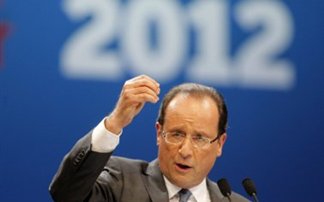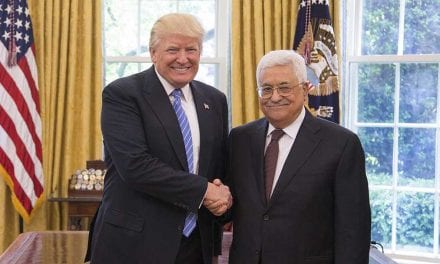Syria: Trump-Clinton agree on military escalation
By Patrick Martin
Tuesday night’s debate between the vice presidential candidates of the Democratic and Republican parties was a display of mudslinging, lies, canned rhetoric and phony promises on a par with the first debate between the presidential candidates the previous week, with one telling exception.
Virginia Senator Tim Kaine, the Democrat, and Indiana Governor Mike Pence, the Republican, interrupted and contradicted each other incessantly, alternating insults directed against the other ticket with denunciations of their opponents for running “insult-driven” campaigns.
But when it came to the question of the intensifying military confrontation in Syria between US-backed Islamic rebels on the one side and the Russian-backed government of President Bashar al-Assad on the other, there was bipartisan agreement, with the two supposedly bitter antagonists seeming to finish each other’s sentences.
The debate moderator, Elaine Quijano of CBS News, allowed the two candidates to maul each other and insult the intelligence of their viewing audience for more than an hour, making little attempt to steer the direction of the discussion. On Syria, however, she loaded the question in favor of US military intervention, isolating the conditions in Aleppo, currently the focus of US war propaganda, from the five years of bloody civil war instigated by Washington.
According to the debate transcript, Quijano said: “Two hundred fifty thousand people, 100,000 of them children, are under siege in Aleppo, Syria. Bunker buster bombs, cluster munitions, and incendiary weapons are being dropped on them by the Russian and Syrian militaries. Does the US have a responsibility to protect civilians and prevent mass casualties on this scale?”
By Patrick Martin
Tuesday night’s debate between the vice presidential candidates of the Democratic and Republican parties was a display of mudslinging, lies, canned rhetoric and phony promises on a par with the first debate between the presidential candidates the previous week, with one telling exception.
Virginia Senator Tim Kaine, the Democrat, and Indiana Governor Mike Pence, the Republican, interrupted and contradicted each other incessantly, alternating insults directed against the other ticket with denunciations of their opponents for running “insult-driven” campaigns.
But when it came to the question of the intensifying military confrontation in Syria between US-backed Islamic rebels on the one side and the Russian-backed government of President Bashar al-Assad on the other, there was bipartisan agreement, with the two supposedly bitter antagonists seeming to finish each other’s sentences.
The debate moderator, Elaine Quijano of CBS News, allowed the two candidates to maul each other and insult the intelligence of their viewing audience for more than an hour, making little attempt to steer the direction of the discussion. On Syria, however, she loaded the question in favor of US military intervention, isolating the conditions in Aleppo, currently the focus of US war propaganda, from the five years of bloody civil war instigated by Washington.
According to the debate transcript, Quijano said: “Two hundred fifty thousand people, 100,000 of them children, are under siege in Aleppo, Syria. Bunker buster bombs, cluster munitions, and incendiary weapons are being dropped on them by the Russian and Syrian militaries. Does the US have a responsibility to protect civilians and prevent mass casualties on this scale?”
Kaine and Pence were both deliberately concealing from the American people the full consequences of the actions they were both advocating—the fact that stepped-up US military intervention in Syria immediately risks a military confrontation between the world’s two main nuclear powers, Russia and the United States.
The moderator’s questioning was equally specific and persistent on the question of North Korea. How should the US government respond if it learned that North Korea had loaded a nuclear warhead onto a ballistic missile capable of reaching the United States, she demanded to know.
Again, both candidates accepted the premise of the question and agreed that a military response might be required, although each suggested that the US government should first put pressure on China to intervene before authorizing a preemptive military strike on Pyongyang.
Pence served on the House Armed Services Committee during his congressional career, before he returned to Indiana and ran for governor in 2012. Kaine sits on both the Senate Armed Services Committee and the Senate Foreign Relations Committee, one of a handful of senators entrusted with both roles.
Both candidates are tried and tested defenders of American imperialism, each regarded as a safe pair of hands by the US military-intelligence apparatus, like Hillary Clinton, but in contrast to Trump, who is viewed as unreliable on the central strategic question of Washington’s developing confrontation with Russia and China.



















